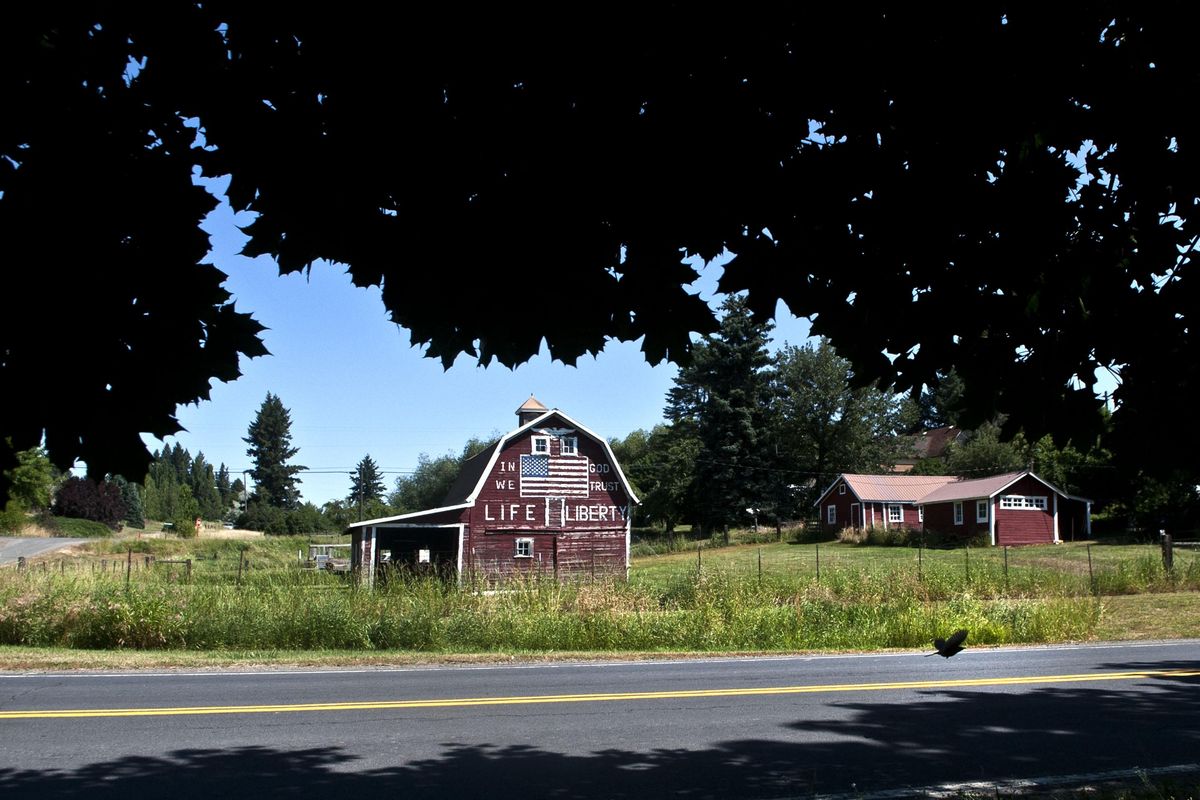Latah blues: Town weighs disincorporation as city government lacks candidates for office

LATAH – When winter storms bury the highway in snow and ice, it can be nearly impossible to leave this tiny town on the Palouse.
But residents can travel with ease to a neighbor’s house, or to Latah’s church or post office. The town government ensures that streets are thoroughly plowed.
“We make sure every single person in Latah can get out of their driveway,” resident Lisa La Bolle said this month at a Latah Town Council meeting.
The snow situation might be different if the responsibility of plowing Latah’s streets were left to Spokane County.
Yet some residents, including a sitting councilman, have floated the idea of disincorporating the town and letting the county take over services such as snow plowing and construction permitting.
The idea so far has remained just that – an idea. But it has bubbled to the surface in recent weeks, in part because no one filed to run for mayor or any of the four council positions that are up for election this year. There will be a three-day special filing period next month after the primary would usually take place.
Mayor Doug Arnold, who plans to move away next year after finishing his term, recently issued a newsletter urging residents to participate in the local government.
“What’s going to happen to our community if we don’t run for office?” he asked. “To me, it is nothing but foolishness to presume that the county will run our community the way that we want it to be run.”
Town shrinking
Latah is a quiet community along Highway 27 about 30 miles south of Spokane Valley.
The first homesteaders arrived in the area in the early 1870s, and the town incorporated in 1892. Within a decade, its population topped 400, and there were dozens of businesses, including two hotels, two blacksmiths and stores selling shoes, jewelry and groceries. Several trains passed through each day.
But as wheat and lentil farming has become less lucrative and economic opportunities have concentrated in urban centers, Latah has shrunk. With about 195 residents today, it’s the second-smallest city in Spokane County.
The last bona fide business in Latah was a café that served as a central gathering place. Councilman Larry La Bolle said it closed about 13 years ago, taking with it “a dimension of connectivity” among residents.
“People tend to be less engaged at a community level and more engaged with what they do at home, and oftentimes it’s entertainment, electronic stuff, forms of communication,” he said.
But longtime resident Yvonne Warren said she and her neighbors still look out for one another, for example, by sharing food in the winter or when someone gets sick.
“That’s a part of the community I don’t want to lose,” she said. “That’s the way I was raised.”
Larry La Bolle, who works for Avista Corp. in Spokane, and his wife, Lisa, have worked to restore a Victorian house where they’ve lived since 2002. Other Latah landmarks include the 115-year-old White Swan Hotel, the old schoolhouse and the combination town hall/fire station/community center.
Most residents do their grocery shopping in Spokane or Spokane Valley. Kids go to school in Spangle or Tekoa.
Jennifer Embry, who was recently appointed to fill a vacancy on the council, said there is usually little hubbub.
“The biggest traffic is during harvest and during planting when the combines and stuff are coming in,” she said.
La Bolle said he wasn’t surprised that no one filed to run for election this year. Council meetings have been sparsely attended for several years, so residents probably weren’t aware of the need, he said.
“They’re well-attended when there are problems,” he said. “We have had very little attendance for the last couple years, and it’s just simply a function of things being pretty easygoing, pretty peaceful.”
‘We’re what’s left’
Some residents, including the mayor and the La Bolles, speak passionately about the value of Latah’s self-governance.
They note that the town has its own water system and issues its own building permits, and that most residents personally know their local leaders.
“I really believe people have no idea what they would lose if the town were to disincorporate,” Larry La Bolle said. “They’re going to lose the level of service they enjoy now. Their costs are going to go up. And they’re going to have no local control over how things are administered, over how disputes are resolved.”
On the other side of that discussion is Councilman Steve Leitz, who believes the town government is powerless to deal with common problems, like dogs that escape and poop in neighbors’ yards.
He pointed out that the county already provides law enforcement and other services for Latah and that the town relies heavily on state and federal development grants.
And besides, many of the problems that are brought to the council are “petty,” Leitz said.
“I don’t want to sit here and be a referee for people,” he said.
At this month’s council meeting, Mayor Arnold said he had heard from people, including members of his family, who have flirted with the idea of dissolving the town.
“From their perspective, they know what it’s like when the council and the mayor will do what they please in spite of what the feedback they get from the community is,” he said. “And they’re afraid that without good people running the council – ”
LaBolle interrupted him to ask, tongue in cheek, “Are we the good people?”
Arnold grinned and replied, “We’re what’s left.”